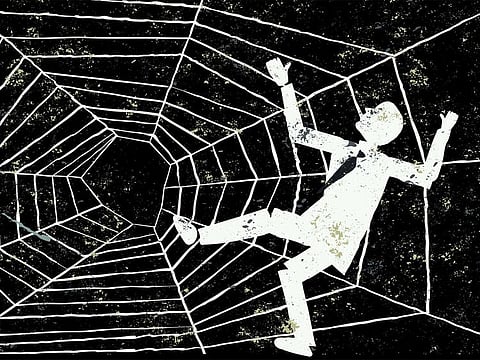In today’s world, economic growth will not come from dreaming of empires
Arab world is being reshaped by sharp economic focus

The Gulf and Arab countries are bordered by two nations that once had empires that lost their power after the First World War, leading to their economic deterioration. The victorious forces in that nasty war then dominated the production and trade of natural resources in the Middle East.
In return, Arab countries gained their independence, after which some countries began to build economies based on these natural resources, while instability that prevailed in some of the neighbouring states led to their economic decline. With the ‘Arab Spring’ revolution in the earlier part of the last decade, the dormant imperial sense of those two lost empires was again on the ascendant, forgetting the magnitude of the enormous economic, political and cultural changes that have shaped the balance of power in the region and the world.
They tried to make the most of these regional events from a sectarian religious angle. They gained opportunistic supporters, many of whom made huge fortunes feeding on the empty imperial aspirations of both sides. In contrast, the Arab countries are no longer weak as they were in the past.
Although, the two old empires harnessed enormous economic resources and formed armed militias in many Arab countries, this did not lead to any success. Or what they could derive was temporary success that has long since faded due to successive setbacks from imperial-minded projects that do not correspond to the age of the internet and artificial intelligence.
However, the consequences were catastrophic on their economies as evidenced in the collapse of their currencies and the significant increase in inflation rates that have risen to over 50 per cent annually, while unemployment is at 30 per cent.
This imperial approach has led to devastating economic effects on their own peoples. On the contrary, separatist movements in the two countries have grown because of their fragile and incoherent ethnic structure. After a decade of setbacks, the catastrophic consequences had clearly been seen by the leadership of the two countries, requiring them to avoid further economic collapses.
Pragmatism trumps
The imperial approach adopted by the first “empire” was more pragmatic, because of its proximity to Europe and the adoption of secularism within its political system. Therefore, it reviewed its previous policies and carried out a comprehensive assessment of the losses, concluding that imperial aspirations would bring further losses.
The logical conclusion has led this country to change its approach and take on a strategy based on common interests, economic, technological and cultural cooperation and non-interference in others’ internal affairs.
The new approach has reflected almost immediately on its economic situation, leading to the flow of GCC investments, while more jobs have been created. If this country continues with this approach as expected, this will have a major plus on its economic situations and the living standards of its people.
No lessons learnt
The problem now lies in the insistence of the second “empire” to continue on the same path, which is doomed to be failure, despite warning signs such as the country’s economy suffering more losses and its citizens having to make do with steadily deteriorating living standards. More than half of its population are living below the poverty line.
So, there are now two different but contradictory approaches, adopted by the two empires. The first one is pragmatic, while the other is intransigent and still takes succor from a distant past that is without economic foundation. It has presented the worst model of development anywhere.
Meanwhile, the first country has begun to reap the fruits of economic cooperation and the policy of good neighbours. The second one needs to wake up from its narcissistic dreams.
The present is not the time for geographical expansion of empires, but a time for the empires crafted from technologies, deep knowledge and innovation. Apple, Microsoft, Samsung, Google and Amazon –now, these are today’s real and unmatched empires.
-- The writer is a specialist in energy and Gulf economic affairs.
Sign up for the Daily Briefing
Get the latest news and updates straight to your inbox



